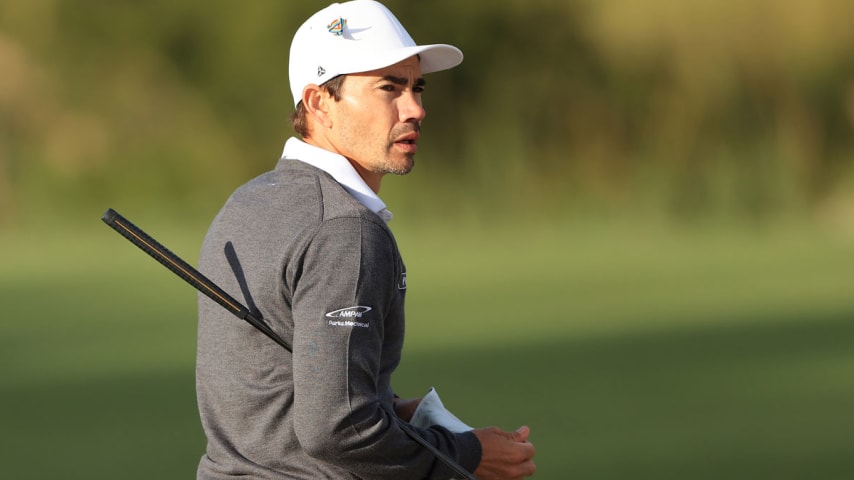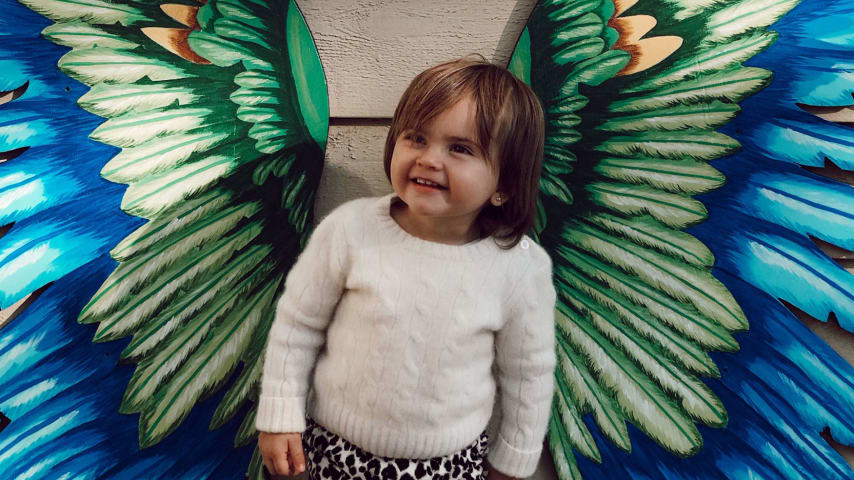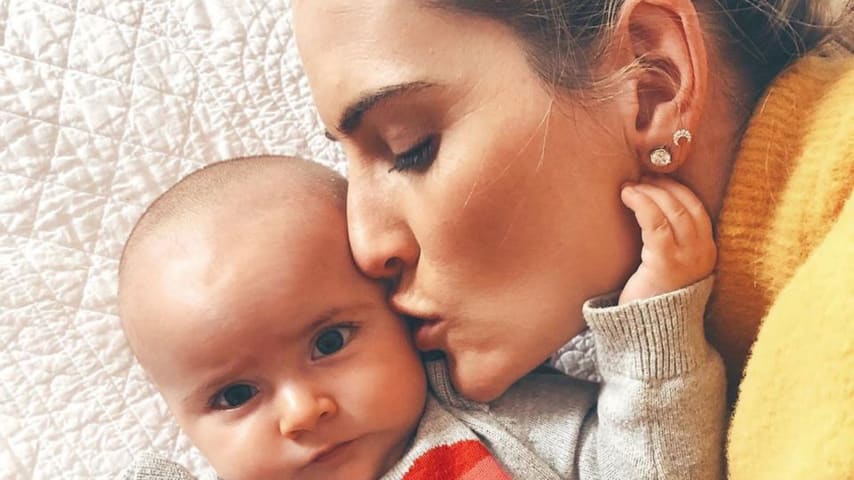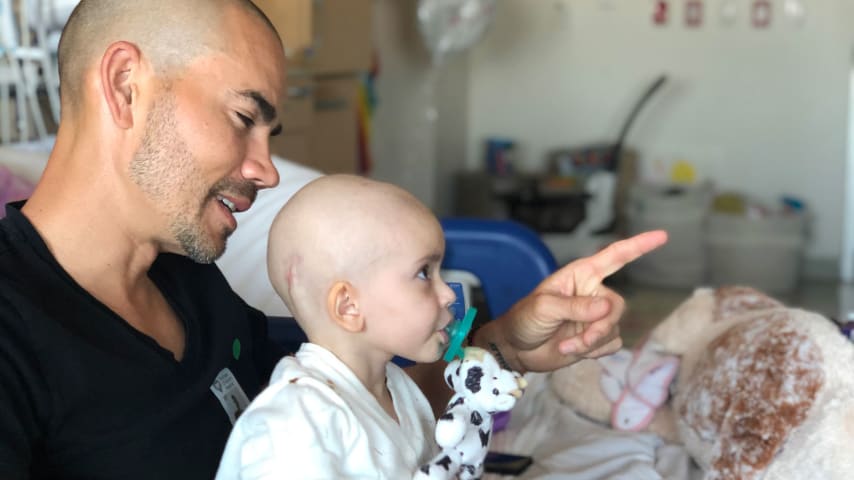How Camilo and Maria Villegas have found a way to keep their daughter’s memory alive
15 Min Read

Doctors couldn't save their daughter but Camilo and Maria Villegas have found a way to keep her memory alive
Editor's Note: Camilo Villegas won the 2023 Butterfield Bermuda Championship, ending a nine-year victory drought on the PGA TOUR. With his fifth TOUR title, Villegas is now exempt through the 2025 season.
Prior to the World Wide Technology Championship, the week preceding the Butterfield, Villegas stood 223rd on the season-long FedExCup standings. He was signed up to compete at Second Stage of PGA TOUR Q-School presented by Korn Ferry. Then he finished runner-up at the World Wide Technology, moving to 147th on the FedExCup Fall standings, and he carried the momentum to Bermuda. He carded 24-under 260 at Port Royal Golf Course for a two-stroke win over Alex Noren, moving to 75th in the FedExCup.
After putting out on the 72nd hole to secure his victory in Bermuda, Villegas immediately looked to the sky in memory of his late daughter Mia, who passed away at 22 months in July 2020 after battling tumors on her brain and spine. This one was certainly for Mia.
She didn’t like to say the word. Cancer. Or the other words. Tumor. Chemotherapy.
Those are scary words for anyone. But when you’re talking about the health of your daughter, the little girl who had yet to celebrate her second birthday, the words are too much to even fathom.
So, the IVs and the pills and the drugs coursing through little Mia’s veins were all part of what Maria Ochoa called simply the “healing treatment” that she and her husband, Camilo Villegas, hoped would give their only child a chance at a longer, healthy life.
And that’s what she’d tell friends and family when they called or texted words of love and support: The healing treatment had begun.
Alas, the best efforts of the doctors at the Nicklaus Children’s Hospital in Miami couldn’t save Mia, who was diagnosed with high-grade glioneuronal tumors on her brain and on her spine in March. Neither could the prayers that Maria and Camilo – along with the many people who care for them -- offered up.
Mia died on July 26. Her parents, though, are determined that Mia’s life will have meaning beyond the 22 short months and two hours that the toddler spent on this earth.
The couple have recast their foundation as Mia’s Miracles and focused it on helping children and families in similar situations both in the United States and Colombia, where Camilo and Maria were both born. The bright colors their little girl loved so much are reflected in the rainbow in the logo.

And with this, another kind of healing has begun.
“I'm so proud of my family, and I'm so honored that Mia chose us to be her parents,” Maria said. “Sometimes people call me and they're like, ‘This is so unfair. Why did it happen to you guys? You guys are so nice,’ or ‘Why to a child?’”
“People have all these questions, and I have never questioned God on the why, nor will I. I have a very clear spiritual certainty about our souls and their mission, and if I ask why it's pointless because I'm never going to understand. I'm never going to know. ...
“Life is not fair. Life is not about being fair. Life happens, and we all come to this world with a very specific mission, and Mia came to this world with a very specific mission. She came here to teach, not to learn, and God has been with us the whole time, and he will continue to be with us the whole time.”
Maria and Camilo met in Medellin, Colombia, when they were 12 years old. At the time, he was dating the older sister of one of Maria’s neighbors.
“I used to be like, ‘Oh, Camilo, he's so cute. He's so cute,’” Maria recalled. “His girlfriend's sister, every time he would go visit her on his bike, she would call me, and she would be like, ‘Oh, Camilo's here,’ so I would go to their house. And we became friends.”
Romance blossomed in 2005. Maria, who by then was in law school in Colombia, had broken up with the young man she’d been dating for six years. Camilo, who had graduated from the University of Florida and was embarking on life as a pro golfer, heard the news and decided to ask her out.
“We went out that Friday,” Maria said, “and we’ve been together since then.”
The couple eventually married in 2014, and Mia was born four years later on Sept. 26. She was an “easy” baby, remembers Maria, with a strong personality and intense brown eyes.
“From the moment she was born I knew she was an old soul, and people would always tell me, ‘Oh my God, the way she looks at everyone,’” Maria recalled. “It's very deep. She was just full of joy.”

Mia’s happy place was in the gym with her father, a four-time PGA TOUR champion. The man who earned the nickname Spiderman -- for his distinctive low-to-the-ground way of reading putts -- would come home from a bike ride or paddle boarding and Mia would follow him everywhere.
“She would grab my golf club, she'll grab everything, and she was being like a monkey,” Camilo said. “So, if I started doing squats, all of a sudden, I would look to my side and there she was going up and down squatting with me and I'm like, ‘Man, this is pretty unique.’ So yeah, that was probably our kind of alone time, which was awesome.”
“It’s the cutest thing,” Maria added.
Camilo describes his daughter as “very loving, but at the same time with a strong attitude.” The player who was once ranked as high as seventh in the world injured his right shoulder a few months before Mia was born and played sparingly the next two years, which turned out to be a blessing in disguise.
“It's tough to describe, obviously, the love you feel as a parent,” Camilo said. “And then when you started interacting with her and she's just giving you so much love and energy, it's awesome.
“That's why I'm actually so thankful about not playing golf during those months. You know, my shoulder happened for a reason. … It’s not what we wanted, but, hey, I got to enjoy Mia for 22 months. If I would have been playing golf, you know how our schedules are, busy and crazy.”
Camilo, Maria and Mia had just returned from an extended trip to Colombia – where he capped off the visit by tying for fourth at the Country Club de Bogata Championship on the Korn Ferry Tour in a rare competitive appearance -- when they noticed something was wrong.
It was the week of The Honda Classic, a tournament Camilo won in 2010. Maria noticed that Mia wasn’t feeling well, but she thought maybe her daughter had picked up some kind of bug from one of the other kids at the mommy-and-me gymnastics class they attended that week.
“She was crying a little bit more than normal and there was certain things that were like, ‘Man, what's going on?’” Camilo recalled. “So, Maria took her to the pediatrician, and we thought she was teething.”
Mia eventually got to the point where she wasn’t sleeping through the night. She threw up several times, and she didn’t have the energy to play with her father while he worked out. Sometimes when she cried, Mia would hold her forehead or her cheek.
There were also times, though, when Mia acted like a normal 18-month-old. She’d play and her appetite was good. The pediatrician said she probably was just holding her head due to the pain from teething.
The Friday night after THE PLAYERS Championship was canceled due to COVID-19, Mia didn’t sleep at all. Camilo and Maria were worried, so she called their doctor in Colombia, whom she had been keeping in the loop. While the doctor agreed that teething was probably the explanation, he made a suggestion.
“Why don’t you take her to a neurologist,” he told the worried parents. “I don’t think it’s anything like that – but just to be sure.”
Maria knew that it might take weeks to get an appointment with a specialist. But there was a “light bulb in my mind,” and she thought about their friends, Jack and Barbara Nicklaus, and all the work they do with the Nicklaus Children’s Hospital in Miami.
Maybe they could help. Camilo called their son, Gary Nicklaus.
“I need to talk to your mom,” Camilo remembers telling his friend, and in less than 30 minutes, everything had been set up. The neurologist and his team were waiting when Camilo, Maria and Mia arrived around 5 p.m. that Saturday. The following day, Mia had her first MRI.
“I thought it was nothing, to be honest,” Camilo said. “But when 10 people walk into the room to give you news, you know it's not good news. That's where it all started.”
Maria called it “the moment our lives changed.”
The doctors told them that Mia had a mass in her brain with metastases in her cerebellum and spine. She would need surgery on Tuesday. While most people in the country were dealing with the reality of a pandemic, Maria and Camilo -- who said he cried for three days after getting the news – began a fight for their daughter’s life.
The surgery was successful in removing the main mass. Mia would have to have “treatment” – there’s that word again – to take care of the sites where the cancer had metastasized. The family stayed at the hospital for 10 days, and then was able to go home for three before returning to have the stitches removed.
Once they got back to the hospital and had another MRI, though, the news was not good. The tumor, which was nearly the size of a golf ball, was already growing back – just two weeks after it had been removed.
“They told us, ‘This is a very aggressive type of cancer, and you guys cannot go back home. You guys have to stay because we have to start treatment ASAP,’” Maria recalled.
Mia had five brain surgeries and was in ICU for a month. Then she was moved to a room on the oncology floor. Maria spent nearly every night there, although the family rented a house about two minutes from the hospital so Camilo, who struggled seeing his daughter so sick, had a place to go where he could work out and clear his head.
Room 6017 was home for the next three months. Maria decorated the walls with rainbows and photos and pictures drawn by her nieces and nephews and children of the couple’s friends. She put an oil diffuser in the room to make it seem cozy and more like home.
“Energy is very important to me, and I know to create a healthy environment,” said Maria, who describes herself as a spiritual person who tries to live a holistic lifestyle. “I wanted to fill our room with happy energy. ... And I told Camilo ... ‘OK, we're not going to cry here. We're not going to be sad here.
“If any of us needs to have a pity party, we'll go outside, but here we're happy. We're smiling.”

On the door was a sign: Welcome to the land of make believe. Welcome to Mia’s room. Smile and be happy. Maria wanted the doctors and nurses, many of whom remain her friends, to understand the energy in her daughter’s room.
“Because oncology floor, it's tough. It's very tough,” Maria said. “You see children of different ages going through really, really hard stuff, and it's sad. I mean, it can be sad, but my main goal had been to transform sadness into happiness, joy and hope.
“I wanted people to know that was the energy, and it was so funny now because all the nurses and doctors they said that they loved going into our room, and they would come just to talk to us and play with Mia all the time.”
While her daughter was sick, Maria made it a point not to Google the kind of tumor Mia had. But she does remember asking the oncologist, Dr. Ossama Maher, whom she calls the “most amazing guy ever,” what kind of outcome he was hoping for Mia.
“He told me since day one because I did ask him, I was like, ‘What's your goal? Is your goal to improve qualities of lifestyle? Is your goal to buy time?’” Maria said. “And he was always like, ‘No. My goal is to cure your daughter.’
“And that was all I needed to know, and that's what our focus was, and I'm happy I did that because that gave me hope during this whole process.”
On July 20, though, their hope faded. Mia had endured one round of the mild “treatment,” Maria said, and two rounds of a stronger type, but an MRI showed it wasn’t working. Maria prayed for God to show them the way, but she feels Mia did instead.
“She knew. I mean, she knew,” Maria said. “She came out of that MRI and she was a different child. She was kind of sad, but it's very hard to explain. Her spirit knew. Her soul knew that it was time, that she had accomplished her mission and that it was time, and then from then on it was just a really, really hard week.
“But it was quick. So we're thankful for that.”
As much as he would love to hug his daughter again, Camilo agrees.
“The one thing that gives us peace is after she passed, really talking with the doctors and finding out the severity of the situation and where things were going and us seeing the deterioration and she wasn't going to have a good life if she happened to be here with us,” he said. “And I don't think she deserved that. She's definitely in a better place.”
About a month before Mia died, Camilo drove to Ponte Vedra Beach, Florida, to play in the Korn Ferry Challenge at TPC Sawgrass. At the time the doctors were still hopeful, and his brother Manny was going to caddie for him.
The week began with an emotional interview where he detailed for the first time in public the family’s private pain. He was buoyed by the support he felt both at that event and on the PGA TOUR where players started wearing rainbow ribbons for his daughter. Some caddies even wrote Mia’s name on their caps.
“I wasn't expecting anything out of my game,” Camilo said. “I just wanted to just walk the fairways with my brother, see some people and just kind of breathe a little bit of some energy.”
The TOUR wives were supporting Maria, as well. Tiva Lovemark, Jamie’s wife, served as a conduit for information since Maria couldn’t respond to every message. The situation hits home for Tiva more than most since she was diagnosed with a benign brain tumor in 2002. The Lovemarks’ foundation supports patients at Yale New Haven Hospital where she was treated.
Tiva and Dianne Donald, Luke’s wife, helped organize a meal train for the family that stretched well into September. So many wives sent flowers and cards and drawings for Mia’s room that Maria lost count.
“They made a beautiful video that if I see again, I'll be crying like crazy again,” Maria said. “... Very uplifting, and then at the end, the kids have a song for Mia, and when she saw it, she was clapping and dancing with them. It was like their own version of ‘Baby Shark,’ but it was their version of ‘Get well, Mia.’ ...
“Our PGA TOUR family is amazing. The quality of people on the PGA TOUR, it's mind-blowing.”
Not too long ago, Camilo saw Jack Nicklaus for the first time since Mia entered the hospital back in March. The legendary golfer had suffered a similarly heart-wrenching tragedy when his 17-month-old grandson Jake died in a hot tub accident in 2005.
“Jack comes, gives me a big hug and tells me a little bit of story about Jake,” Camilo recalled. “And obviously I'd been playing The Jake (pro-am) for many years, trying to help him raise funds with this. And we had a good chat, man. We had a good chat.
“And it's what I told him. I’ve got two options. I mean, I either have good attitude or become the victim, and if I become the victim it's going to go into a dark place. That's definitely not where I want to be. That's definitely not where Mia wants us to be.
“So, we're opting for the good. We're opting to give back, turn the negative into a positive.”
That’s what Camilo and Maria did on Sept. 26, which would have been Mia’s second birthday. They held the first of five Mia’s Morning Walks on successive Saturdays at their Jupiter home – and virtually around the world -- that raised nearly $84,000 for their foundation, Mia's Miracles.
They walked because Mia had always enjoyed her daily outings on the beach with her mom and her nanny and the family’s 130-pound Great Dane with the rather ironic name of Pixie. People were encouraged to create their own teams to walk whatever distance they chose, or they could contribute to an existing team, many of which were formed by wives of players Camilo competed with on TOUR.
Maria would be walking anyway. She feels close to Mia when she does.
“We always talk, pray and send her positive vibes, and we tell her we're fine and we know she's happy where she is,” Maria said. “It's been a great healing moment of my day.”
There’s that word again. Healing. Mia’s spirit lives on, a daily reminder for Camilo and Maria to fight through the pain of heartbreaking tragedy and help others who need it most. The little monkey may be gone, but through her short life comes an enormous impact.
“I'm sad, of course,” Maria said. “I have days where it's so hard and I miss her physical presence all the time, but I know I'll be OK. I know we'll be fine, and I know we'll just honor her name.
“That's our mission now.”